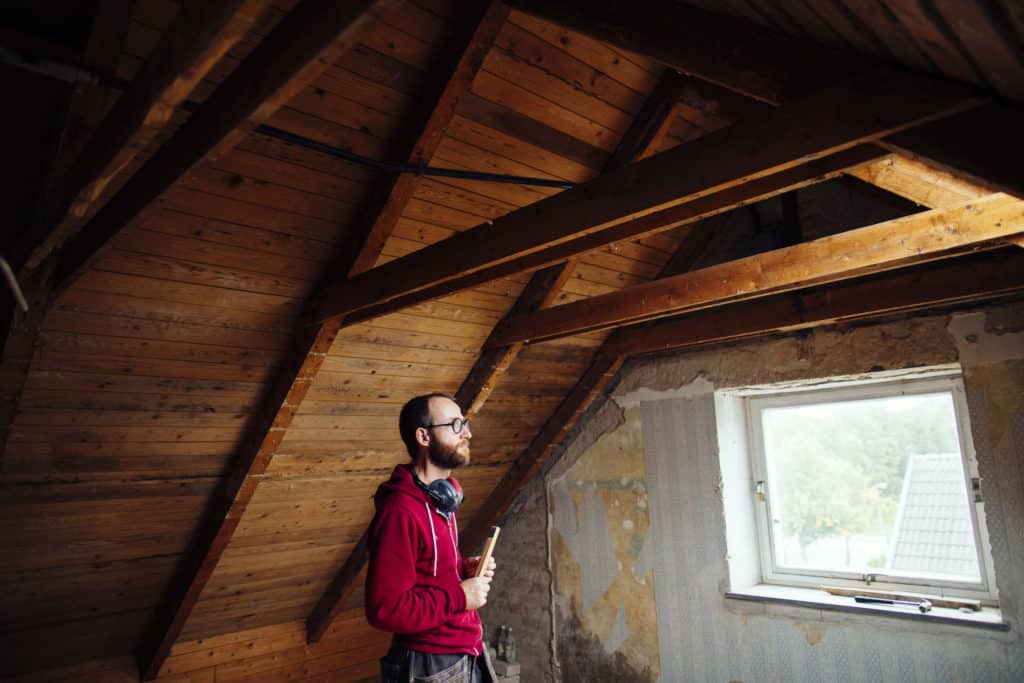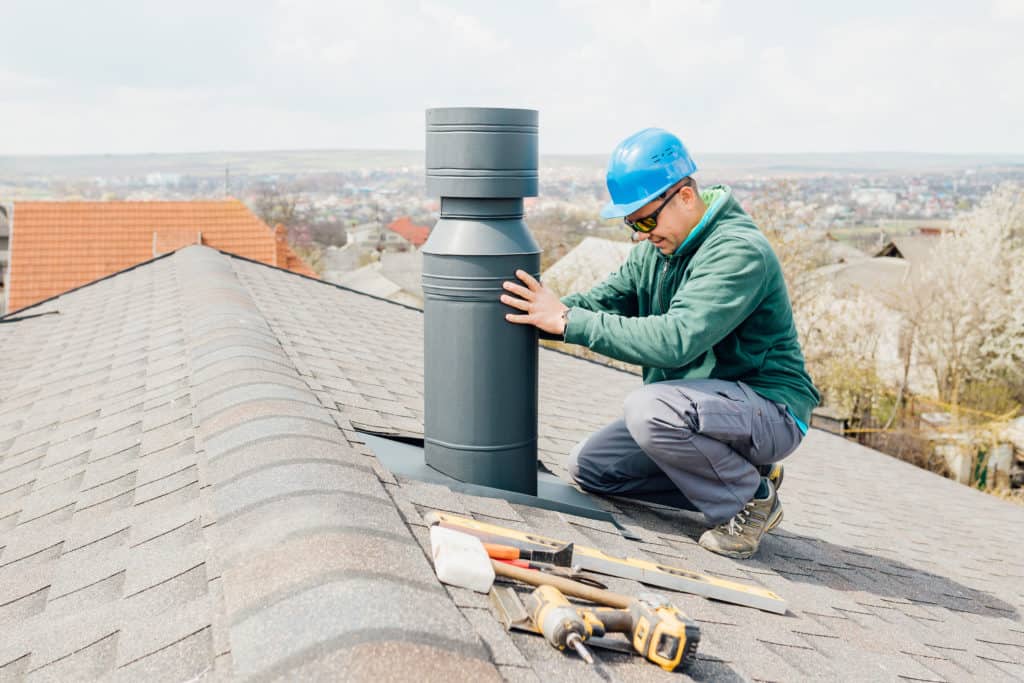Roofing scams can occur in many forms. Some of these scams may promise a free inspection. Others may pretend to work at neighbors’ houses and hang up when you ask them questions. You should be aware of what to look for when calling door-to-door roofers.
What is a roofing scam?
If you’ve seen ads for a “free” roof inspection, you’ve probably heard of a door-to-door roofing scam. But there are a few things you can do to protect yourself. First, it’s always best to verify credentials. Request the license and insurance certificate of any company that quotes you a price for your roofing job. Also, watch out for high-pressure sales tactics. These tactics are common among door-to-door salespeople.
A door-to-door roofing scam involves contractors who show up at your door unexpectedly and convince you that you need immediate repair work. Another common door-to-door scam involves contractors who go door-to-door after a significant storm. Be wary of any company that calls without an appointment. The contractor might ask for an up-front payment, which is a scam.
The scammers use the identities of legitimate roofing companies to avoid detection. This makes it hard for the police to catch them. This is one reason police need neighbors to spread the word about scams. You can also place warning signs on trees in your neighborhood.

How the Scam Works
A scam known as the “Door-to-Door Roofing Scam” targets homeowners. The scam involves convincing unsuspecting victims to sign a form that gives the scammers the power to decide with insurance companies on their behalf. This allows the scammers to hike prices, leaving unsuspecting victims in limbo.
To avoid this scam, you should ask for a license and insurance certificate from the company you are considering hiring. Also, make sure the salesperson does not use high-pressure sales tactics. The scammers often mimic the storm chasers. The salespeople will visit homes in areas where the risk of a storm is high. The salespeople will use high-pressure sales techniques to convince people to commit to a roof repair or replacement.
Many scammers operate under the guise of roofing contractors. They often target homeowners with older homes, senior citizens, or those who have recently suffered significant storms. To trick victims, they present a fake photo of roof damage. Sometimes, they even tear off shingles and hit the roof with a ball-peen hammer to simulate hail and wind damage.
How to Protect Yourself from This Scam
Door-to-door salespeople often pose as free roof inspectors to access homes in vulnerable communities. They target seniors, older homes, and neighborhoods that have recently experienced significant storms. During a free inspection, the scammer may tear off shingles and hit the roof with a ball-peen hammer to simulate wind and hail damage.
This scam takes advantage of homeowners’ lack of roofing knowledge and targets them with a seemingly good deal. The scammer may offer a low initial price, but the homeowner faces unforeseen costs and problems as the work progresses. Many homeowners end up paying far more than they planned for the work.
In addition to exaggerating the damage, door-to-door roofing scammers also use the ploy of “no out-of-pocket” repairs to make the homeowner fall for their scam. Roofing scammers are often called “storm chasers” because they travel to areas of severe weather and offer free or low-cost repairs. Roofing scammers may use the same insurance fraud tactics as storm chasers, raising prices mid-job.
Types of scams
When you get a door-to-door roofing quote, ensure the roofer is insured and licensed. If the salesperson is overly pushy, be suspicious. It’s common for door-to-door salespeople to follow the same scamming system as storm chasers. For example, they may offer free inspections in communities at risk of hurricane damage. The scammer may also cause damage during the inspection – which they can claim to insurance companies.
Roof scams target homeowners with a low income and trusting nature. They use cheap materials and take advantage of the homeowner’s fear that their home might suffer damage. These scammers are often active in neighborhoods with older houses and recent storm damage. They prey on homeowners’ fear of the cost of repairing their homes, which is often enough to send them into a panic.
Another common scam involves dishonest contractors who raise prices once they start work. This scam is called an “elevator ride” since the homeowner doesn’t consider the issues and jumps into a low bid without thinking it through.

Insurance Fraud scam
During an insurance claim, roofers who knock on your door and offer their services may be committing Insurance Fraud. The scammers may use inferior or stolen materials in their work and might not do all of the repairs in the adjuster’s report. Sometimes they may overcharge the insurance company or use faulty shingles that come without a warranty. Even worse, scammers may use phony invoices to collect their money.
The scam has made it possible for some roofers to collect thousands of dollars from homeowners who don’t even have damage to their roofs. These roofers use a loophole in the insurance claims process to hike their prices. In return, homeowners give away their rights and money to these roofing contractors, leaving them in limbo. Many homeowners are unaware of this scam and aren’t ready to deal with it. They fear their insurance company will take advantage of them and pay significantly. So, they sign over their money and rights to the roofer and are left in limbo until their roofs are done.
The first step in avoiding these scams is to obtain written estimates from multiple roofers. Ask to see their references, and don’t sign a legally binding contract unless they have experience in the area. Also, make sure the roofing contractor asks for a deductible.
Mystery damage scam
Some door-to-door roofers are scam artists who will convince you that your roof needs to be repaired. These shady roofers may offer to inspect your roof for free, but you need to know that they can’t guarantee that it will be repaired correctly. Even worse, some of them will intentionally cause damage to your roof to encourage you to file an insurance claim.
If you’re considering hiring a door-to-door roofer, beware of the fluctuating bid scam. This scam targets homeowners who don’t know much about roof repair. The scammer will offer a low price, but you’ll discover that “unexpected problems” and “unexpected costs” will continue to mount after the work is done. Ultimately, you’ll pay far more than you initially agreed on. Even if you’re not paying for these “unexpected costs” upfront, the contractor may threaten to walk away if the work doesn’t go well.
If a door-to-door roofer offers to inspect your roof for free, but you don’t want to let them climb on your roof without your permission, this is a warning sign of a scam. Never allow a stranger to inspect your roof or sign a contract unless they have proof of their license and insurance. You should also ensure that the roofer you hire has a business address and location. This will help you avoid scammers claiming to be licensed but not registered.

Cheap material scam
Beware of roof scams, especially those that pose as roofing contractors, and offer a free home inspection. These scams often use low-quality materials and will do shoddy work. Some may also imitate hail or wind damage by tearing off your shingles, claiming that the roof has suffered from these events. Before giving them your money, ensure you’ve done your homework and seen the pictures of roof damage.
Another warning sign that you may be a victim of a cheap material scam is a contractor who requests a large down payment before the job begins. These scammers prey on homeowners’ goodwill and steal their money. While a small down payment may be okay to cover materials, it should never exceed 20 percent of the estimated bill. If a contractor requests a sizeable down payment before beginning work, you should move on to a different contractor.
Cheap material scams can be particularly harmful if you’re already facing financial stress from a damaged roof. Once work begins, a scammer may raise his bid, citing unforeseen problems or higher material costs.
Large down payment scam
Beware of door-to-door roofers who require a significant upfront payment before completing work or supplying materials. Likewon’t beware of door-to-door roofers claiming to be insured and needing a check for a down payment, which they may cash. The contractor will claim that the down payment will cover materials and labor, but you won’t get your money back if you fall victim to this scam.
Once they gain the homeowner’s trust, they will homeowner a few hundred dollars. A genuine roofer will have insurance, certifications, and licensing and provide such documentation before agreeing to perform the work.
Homeowners should never agree to sign any paperwork with a door-to-door roofer until the insurance company inspects the roof and approves the work. It’s also good to check the company’s credentials by visiting its fice and interviewing previous clients. Although some door-to-door roofers are legitimate and do excellent work, beware of any contractor who demands a large down payment before starting the job.



